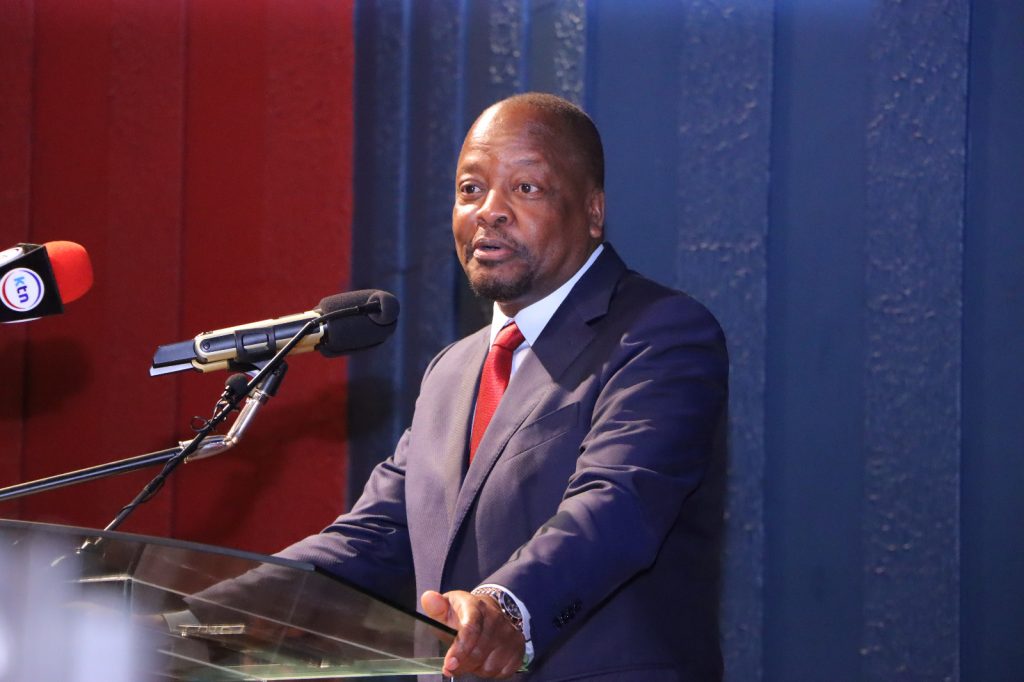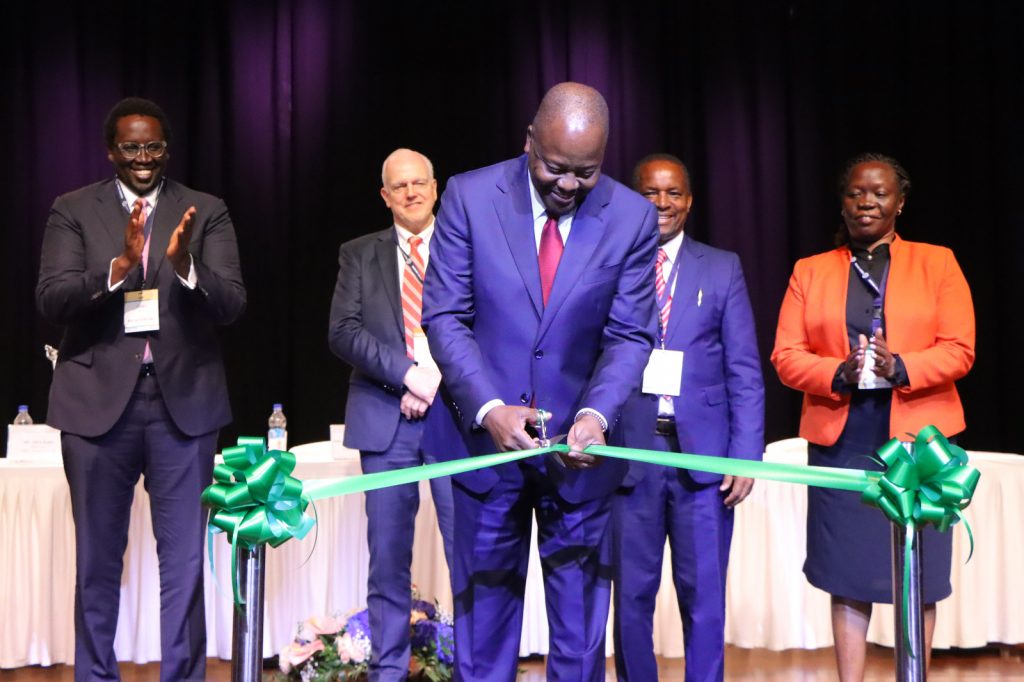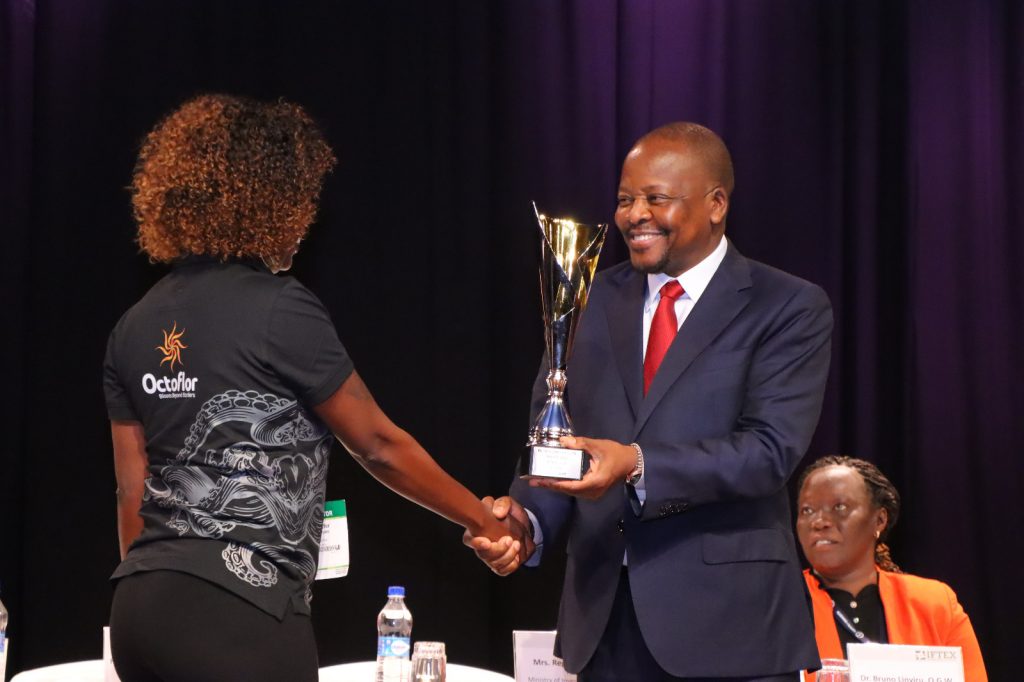

The International Floriculture Trade Expo (IFTEX) 2025 opened its doors this week at the Oshwal Center in Nairobi, reaffirming Kenya’s dominance as one of the world’s top cut flower exporters. The event drew growers, breeders, exporters, technology providers, logistics experts and government officials from across the globe, signaling the country’s resilience and innovation in a competitive global market.
Officially opening the event, Cabinet Secretary for Agriculture and Livestock Development, Mutahi Kagwe, celebrated the industry’s growth while urging stakeholders to prepare for the next chapter. “Kenya is not just in the flower business; we lead it. Ours is a global success story,” Kagwe declared. “We are the third-largest exporter of cut-flowers globally, exporting to over 60 countries.”
The floriculture industry remains a significant pillar of Kenya’s economy, contributing over Kshs. 100 billion annually and supporting more than 200,000 direct jobs, alongside a million livelihoods through supply chain linkages. The Cabinet Secretary lauded the Kenya Flower Council (KFC) for uniting the sector’s players, creating a collaborative ecosystem that has driven the industry’s success over the past three decades.


However, Kagwe cautioned against complacency. “The world is changing rapidly. We can ill-afford to rest on our laurels. Competition is rising. Challenges are mounting. Our natural resources are dwindling,” he observed. The Cabinet Secretary described this year’s expo theme, “Sustaining Kenya’s Floriculture Leadership in a Competitive Global Market,” as “a timely call to action.” He identified several priorities to secure Kenya’s floriculture future:
Tapping Small-Scale Farmers’ Potential
Kagwe emphasized the importance of integrating small-scale farmers into the floriculture value chain. “By creating the necessary conditions for them to plug into this value chain, they too will stand to benefit,” he said. This would diversify production, create year-round supply opportunities, and uplift rural households.
The government is keen on expanding aggregation and processing initiatives through County Aggregation and Industrial Parks (CAIPs) and supporting smallholders via targeted subsidy programs. “There is no excuse as to why this value chain cannot be included as it has a bankable, tried-and-tested business model,” Kagwe asserted.
Tapping Technology and Innovation
Addressing the climate crisis, dwindling resources, and youth disengagement in agriculture, Kagwe called for tech-driven solutions. “Technology is the deal maker. And deal-breaker. We must embrace it, or perish,” he stated.
The floriculture sector’s embrace of climate-smart practices, including water-saving technologies, renewable energy, carbon footprint reduction through sea freight, and full supply chain transparency under the KFC Flowers and Ornamentals Sustainability Standard (KFOSS), was hailed as a model for other agricultural sectors.
Kagwe announced plans to modernize the Kenya School of Agriculture’s 10 campuses, incorporating drones, artificial intelligence, Internet of Things (IoT) tools, and big data analytics. “We are conducting a training market-needs assessment to embed technology and market demands in the curricula,” he noted, adding that global benchmarking and agripreneurship programs would attract youth and build future capacity.
Creating a Supportive Policy and Regulatory Environment
Kagwe acknowledged concerns raised by the industry through a sector memorandum and assured stakeholders of government’s commitment. “I am fully seized of the matters therein. As the issues are multiple and cross-cutting, we are taking a whole-of-government approach,” he said.
The Cabinet Secretary addressed the recent EU Regulation (2024/2004) requirements on False Coddling Moth (FCM) management, confirming that Kenya’s FCM Systems Approach (FCMSA) had been approved by the EU’s Directorate General for Food and Food Safety and was operational. However, he noted the need for further support, particularly for small growers.
“My colleague CS Lee Kinyanjui and I shall be leading a government delegation to the EU to discuss support for Kenya in implementing this protocol,” Kagwe announced, while also raising issues of air freight charges, cess fees by counties, and high farm input costs currently under government review.
Exploring New Markets
The government is actively pursuing fresh markets beyond traditional EU destinations, with recent engagements with the United Arab Emirates (UAE) signaling new opportunities. “The Comprehensive Economic Partnership Agreement (CEPA) signed between our two countries in January 2025 is a game-changer,” Kagwe said, acknowledging the presence of UAE Ambassador H.E. Dr. Salim Ibrahim Binahmed Mohammed Al Naqbi at the event.
In closing, Kagwe urged stakeholders to leverage the expo as more than a trade show, but a platform for knowledge exchange and innovation. “Here, we will connect with 500+ international buyers, forge new partnerships and explore novel markets, from the EU to the Middle East to Asia,” he said.
He reaffirmed the government’s commitment to lowering the cost of doing business, investing in agricultural research, expanding infrastructure, and deepening public-private partnerships. “To our international partners: Kenya is open for business. Explore. Invest. Take home not just our flowers, but our vision for a greener, fairer world,” Kagwe declared.
